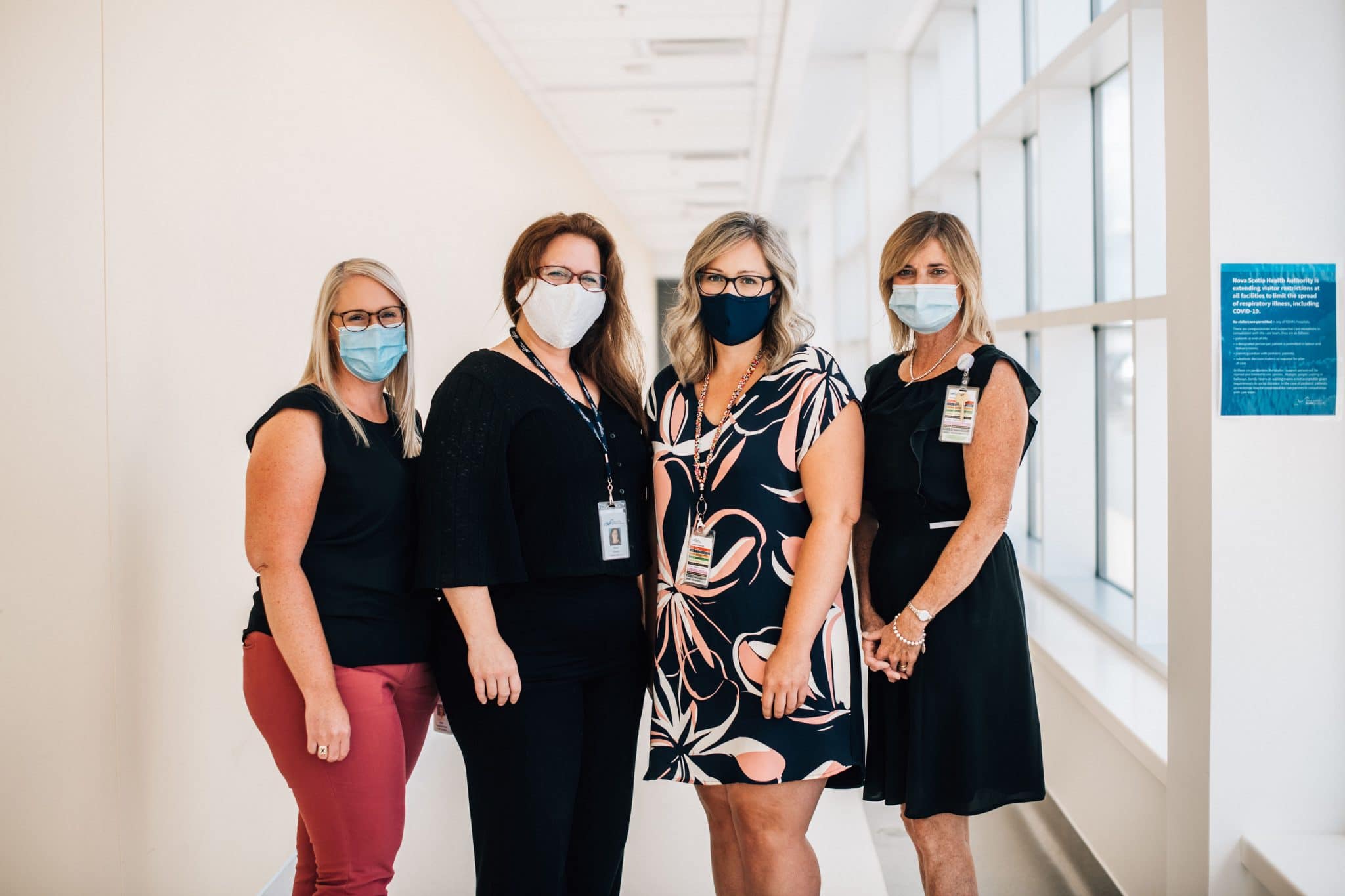New Glasgow, Nova Scotia, Thursday, February 5,...
Working together and responding during extraordinary times

As Nova Scotians and the rest of the world grappled with the swift and dramatic effects of COVID-19, everyone quickly realized who our essential workers and frontline heroes were. They kept grocery stores, gas stations, and pharmacies open, transported supplies, and provided vital services to those in need. Among those heavily relied upon have been health care professionals and support staff. From cleaning, food service, and administrative staff to lab technicians, nurses, and doctors, these dedicated people have met the dangers and uncertainty of the new day.
“Like everyone else, when the pandemic was declared the Aberdeen Health Foundation was anxious to do something,” says Executive Director, Michelle Ferris. “Although we were able to switch to remote work from the safety of home, our colleagues were holding the frontline at the hospital.” Ferris was in regular contact with Kerry Heather, Director of Health Services and Site Lead for the Aberdeen Hospital and Sutherland Harris Memorial Hospital. Nova Scotia Health staff began planning for the pandemic in January and continue to diligently manage the present while preparing for the future. As part of the planning, a list was generated that identified items that might need Foundation support for both the current crisis and potential future waves.
Since the onset of the pandemic the Foundation has reviewed and rapidly approved $380,000 in funding for equipment to provide additional COVID-preparedness for our community.
“We are incredibly fortunate to have the relationship we do with the Aberdeen Health Foundation,” says Kerry Heather. “The responsive support they provide for our programs and services enhances health care delivery in Pictou County and beyond. The care that patients and their families experience is enriched by the generosity of everyone who supports the Foundation. The support goes beyond monetary; it demonstrates trust in our purpose in the community. I am truly honoured to be a part of this partnership.”
Among the first items identified were CADD Pumps for the Palliative Care Unit. Although not a primary centre for COVID patients, a surge in cases would change that. This proactive measure allows the Aberdeen Hospital to be prepared. The CADD pumps assist with pain management and are used for Palliative Sedation Therapy for patients who don’t qualify for intubation. They can also be used in the community to help keep patients at home. By easing the pressure of round-the-clock medication delivery the pumps also reduce stress on families. The equipment will continue to be invaluable post-COVID.
The Foundation also provided funding to help reduce risk to employees and their families. This includes scrubs to be used by staff who would not normally require them, and also equipment used for properly fitting staff with PPE. The new Fit Testing equipment provides an additional unit to manage unprecedented demand as well as a backup for the hospital’s single existing unit.
The Perioperative unit also received major funding, with the replacement of all 10 of the unit’s Post Anesthesia Care monitors. This was important in part because of the critical role the Aberdeen perioperative program plays in the region. The equipment was on a multi-year list for replacement and there was concern that if any of the existing monitors went down it would reduce capacity at a time when full capacity would be absolutely critical. In an effort to be proactive, the hospital’s Site Lead advanced a request to the Foundation, which understood the significance of the equipment and responded. Perioperative care is the care that is given before and after surgery, including post-sedation and ventilation. In the COVID-19 pandemic these monitors could also be used to support ICU patients requiring ventilation.
“When I expressed gratitude to Kerry for her team’s work on the frontline and for ensuring our hospital’s preparedness, her response was thought-provoking,” says Ferris. “By complying with public health advisories and mandates and flattening the curve, she reminded me that individual citizens play the most critical role during these extraordinary times. In this way, the community is the frontline, and the hospital is the last line.” Be that as it may, in addition to the remarkable efforts of our community, the Foundation remains profoundly grateful to health care staff and all essential workers who have risen to the challenges presented by COVID-19.
Pictured above (left to right): Health Services Managers: Hollie Cameron O’Laney, Aberdeen Emergency Department; Kerry Heather, Site Lead for the Aberdeen Hospital and Sutherland Harris Memorial Hospital; Katy MacDonald, Primary Care and Chronic Disease Management; and Debbie MacDonald, Aberdeen Palliative Care and Women & Children’s Health.